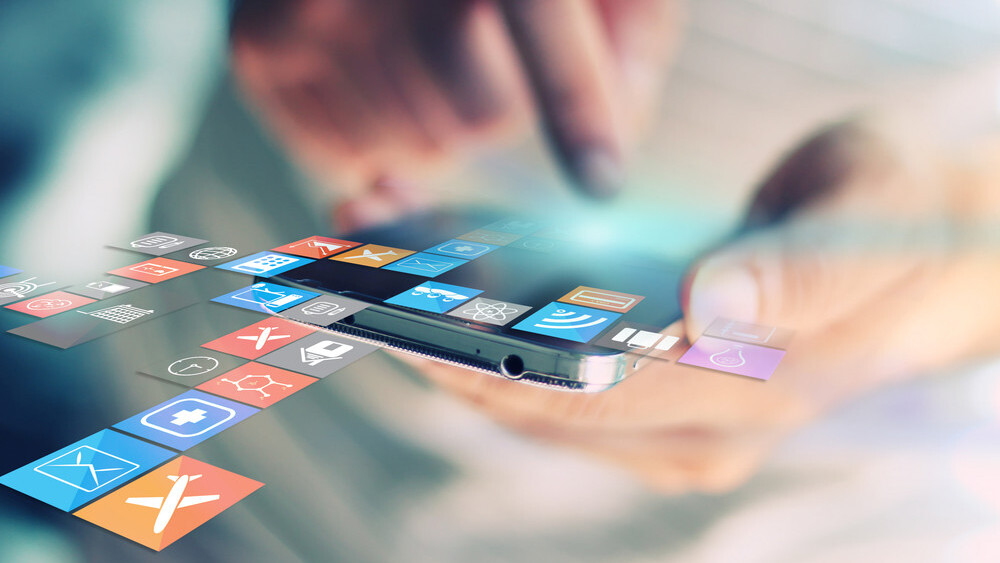
The promise of 5G includes faster internet, greater mobile connectivity for businesses, and the ability to take futuristic digital experiences like VR and AR mainstream. With such limitless potential, the question becomes just how 5G will change the way people use their devices.
To find out what’s coming, I asked a group of entrepreneurs from YEC the following question:
How do you see 5G changing the way consumers or businesses use the internet in the next five years?
1. Faster internet means more real-time connections
 The faster your internet the more you can do with it. Faster internet will allow consumers to use live video while consumers and brands interact on a real-time basis. There will also be more virtual reality opportunities on the go with 5G. Live streaming video can still be unstable with 4G, but when 5G emerges we will reach speeds that allow us to truly become one with our customers. – Joe Apfelbaum, Ajax Union
The faster your internet the more you can do with it. Faster internet will allow consumers to use live video while consumers and brands interact on a real-time basis. There will also be more virtual reality opportunities on the go with 5G. Live streaming video can still be unstable with 4G, but when 5G emerges we will reach speeds that allow us to truly become one with our customers. – Joe Apfelbaum, Ajax Union
2. Mobile will dominate
 It’s estimated by the year 2020, 90 percent of people over 6 years old will have a cell phone. This means that if you’re not focused on making your business experience better on mobile, you’ll miss out. Millennials like myself give something a try. You have five seconds of our attention. If your website, app or business doesn’t work, I’ll never use it again and make sure my friends don’t either. You have only one chance. Make sure everything loads fast, works right and is catered to the 50 percent of the world’s population under 30 years old. – John Rampton, Due
It’s estimated by the year 2020, 90 percent of people over 6 years old will have a cell phone. This means that if you’re not focused on making your business experience better on mobile, you’ll miss out. Millennials like myself give something a try. You have five seconds of our attention. If your website, app or business doesn’t work, I’ll never use it again and make sure my friends don’t either. You have only one chance. Make sure everything loads fast, works right and is catered to the 50 percent of the world’s population under 30 years old. – John Rampton, Due
3. Internet connectivity will become wireless
 5G will bring wireless internet to businesses everywhere. Instead of having cables connecting your business to the internet, 5G will open the way for your business to consume the internet in more ways. Not only will you not be tethered to a wired system, but your workforce can take a broader bandwidth with them out in the field, giving you greater mobility and faster internet. 5G opens the door for truly wireless connectivity everywhere. – Nicole Munoz, Start Ranking Now
5G will bring wireless internet to businesses everywhere. Instead of having cables connecting your business to the internet, 5G will open the way for your business to consume the internet in more ways. Not only will you not be tethered to a wired system, but your workforce can take a broader bandwidth with them out in the field, giving you greater mobility and faster internet. 5G opens the door for truly wireless connectivity everywhere. – Nicole Munoz, Start Ranking Now
4. Faster troubleshooting in the IoT
 Usually, when businesses or consumers send reports to developers after software crashes, diagnostics can take up to two hours. Withthe prevalence of Smart technology, we’ll be looking at the connectedness of driverless cars, smart homes and meters all accessible from one point. So for instance, if a washing machine malfunctions, it will be cheaper for the consumer to fix it instead of hiring a professional, simply by sharing the data from the machine through the cloud. Consumer technology will be able to save energy depending on the scenario and machines will be more intuitive. – Cody McLain, SupportNinja
Usually, when businesses or consumers send reports to developers after software crashes, diagnostics can take up to two hours. Withthe prevalence of Smart technology, we’ll be looking at the connectedness of driverless cars, smart homes and meters all accessible from one point. So for instance, if a washing machine malfunctions, it will be cheaper for the consumer to fix it instead of hiring a professional, simply by sharing the data from the machine through the cloud. Consumer technology will be able to save energy depending on the scenario and machines will be more intuitive. – Cody McLain, SupportNinja
5. 5G will bring newer realities to life
 Obviously mobile will rule the business space, but other technologies, like augmented reality and virtual reality, will also become mainstream and, most importantly, will change marketing as we know it. The term ‘digital experience.’ which is considered just jargon today, will become associated with tangible ROIs. (Think live walking directions, on-the-go product prices, hologram video conferencing, etc.) As marketers, the world of online marketing as we know it will seep into a new realm. It just furthers the thought that all businesses must invest in futuristic digital marketing strategies. – Pratham Mittal, Outgrow
Obviously mobile will rule the business space, but other technologies, like augmented reality and virtual reality, will also become mainstream and, most importantly, will change marketing as we know it. The term ‘digital experience.’ which is considered just jargon today, will become associated with tangible ROIs. (Think live walking directions, on-the-go product prices, hologram video conferencing, etc.) As marketers, the world of online marketing as we know it will seep into a new realm. It just furthers the thought that all businesses must invest in futuristic digital marketing strategies. – Pratham Mittal, Outgrow
6. There will be augmented reality everywhere
 To fulfill its true potential, augmented reality needs a lot of processing power. For the foreseeable future, battery and processing constraints will limit on-device capabilities. Today, we have the cloud, but there’s a limit to how much real-time cloud processing we can do with current bandwidths. 5G could change all that, allowing for real-time cloud processing and truly responsive augmented reality applications for mobile devices. – Vik Patel, Future Hosting
To fulfill its true potential, augmented reality needs a lot of processing power. For the foreseeable future, battery and processing constraints will limit on-device capabilities. Today, we have the cloud, but there’s a limit to how much real-time cloud processing we can do with current bandwidths. 5G could change all that, allowing for real-time cloud processing and truly responsive augmented reality applications for mobile devices. – Vik Patel, Future Hosting
7. Certain industries will move to be completely mobile
 As internet speeds increase because of innovations with 5G and beyond, there will be a number of very large industries that I expect will move almost entirely to mobile. One of the areas I see firsthand where people prefer mobile is online travel. With the success of mobile travel companies like HotelTonight (which is entirely mobile), consumers are sending a message that they want to leverage thebest of mobile, such as GPS sorting of hotels, access to real-time inventory, and deep discounts through auction-style pricing. As mobile speed flourishes, so will mobile travel. – Obinna Ekezie, Wakanow.com
As internet speeds increase because of innovations with 5G and beyond, there will be a number of very large industries that I expect will move almost entirely to mobile. One of the areas I see firsthand where people prefer mobile is online travel. With the success of mobile travel companies like HotelTonight (which is entirely mobile), consumers are sending a message that they want to leverage thebest of mobile, such as GPS sorting of hotels, access to real-time inventory, and deep discounts through auction-style pricing. As mobile speed flourishes, so will mobile travel. – Obinna Ekezie, Wakanow.com
8. The size of the addressable market will grow
 Look to South Korea, where more people per capita use the internet than elsewhere. South Korea is the world leader in internet speed with an average of 26 Mbits/s, twice as fast as the U.S. The material impact of faster network access is that more people go online. That’s why Google spends billions of dollars each year making the search results faster. Furthermore, it allows people to move to mobile-first, or mobile-only, and give up desktops and broadband. This lower cost of entry to high-speed internet only increases the pool of internet uses. Whether for B2C or B2B, this all just increases the size of the addressable market. – Fan Bi, Blank Label
Look to South Korea, where more people per capita use the internet than elsewhere. South Korea is the world leader in internet speed with an average of 26 Mbits/s, twice as fast as the U.S. The material impact of faster network access is that more people go online. That’s why Google spends billions of dollars each year making the search results faster. Furthermore, it allows people to move to mobile-first, or mobile-only, and give up desktops and broadband. This lower cost of entry to high-speed internet only increases the pool of internet uses. Whether for B2C or B2B, this all just increases the size of the addressable market. – Fan Bi, Blank Label
9. Currently untapped applications will emerge
 With faster reliable 5G internet communications, we can see larger sets of video content in live video, virtual reality and augmented reality being delivered in different consumer mobile hardware. Additional data can be sent, processed and crunched in real time for applications in medicine including medical imaging, expert systems, and other autonomous systems that can utilize intensive data processing and real-time computing of large video, images, and other data capturing sources. – Nemoy Rau, US Biometrix
With faster reliable 5G internet communications, we can see larger sets of video content in live video, virtual reality and augmented reality being delivered in different consumer mobile hardware. Additional data can be sent, processed and crunched in real time for applications in medicine including medical imaging, expert systems, and other autonomous systems that can utilize intensive data processing and real-time computing of large video, images, and other data capturing sources. – Nemoy Rau, US Biometrix
10. Businesses will decrease operational costs while increasing connectivity
 The companies that choose to embrace 5G mobile technology could not only decrease their operation costs internally, but also increase their connectivity among employees that either work remotely or travel frequently. With 5G projecting to be 40 times faster than 4G, businesses will be able to utilize the new speeds as well as the rise of IoT to change the way they do business with their customers and employees. – Anthony Pezzotti, Knowzo.com
The companies that choose to embrace 5G mobile technology could not only decrease their operation costs internally, but also increase their connectivity among employees that either work remotely or travel frequently. With 5G projecting to be 40 times faster than 4G, businesses will be able to utilize the new speeds as well as the rise of IoT to change the way they do business with their customers and employees. – Anthony Pezzotti, Knowzo.com
11. There will be seamless cloud and device interaction
 With current mobile technology, there’s still a clear divide between on-device storage and processing, and cloud storage and processing. 5G, with its much greater bandwidth, is likely to marge that difference. The cloud will always outpace on-device capabilities, but with bandwidths orders of magnitude faster, it won’t matter. Every application on a mobile device will have real-time access to almost limitless storage and processing power. – Justin Blanchard, ServerMania Inc.
With current mobile technology, there’s still a clear divide between on-device storage and processing, and cloud storage and processing. 5G, with its much greater bandwidth, is likely to marge that difference. The cloud will always outpace on-device capabilities, but with bandwidths orders of magnitude faster, it won’t matter. Every application on a mobile device will have real-time access to almost limitless storage and processing power. – Justin Blanchard, ServerMania Inc.
12. There will be a focus on video content
 High bandwidth and video content will become much more prevalent. Right now, companies focus on page speed load times to make it work fast on mobile networks. With 5G, bandwidth shouldn’t be a concern. The use of video content will explode with 5G, as will thepresence of 3D content. These content types will expand the type of content and how it’s presented, giving brands a lot more flexibility to deliver rich mobile experiences that are currently limited by today’s bandwidth. – Dan Golden, Be Found Online
High bandwidth and video content will become much more prevalent. Right now, companies focus on page speed load times to make it work fast on mobile networks. With 5G, bandwidth shouldn’t be a concern. The use of video content will explode with 5G, as will thepresence of 3D content. These content types will expand the type of content and how it’s presented, giving brands a lot more flexibility to deliver rich mobile experiences that are currently limited by today’s bandwidth. – Dan Golden, Be Found Online
TNW originally published this piece in November of 2016. We sometimes update and/or re-publish articles from our archives that are fun, informative, or highly-relevant… like this one.
Get the TNW newsletter
Get the most important tech news in your inbox each week.




